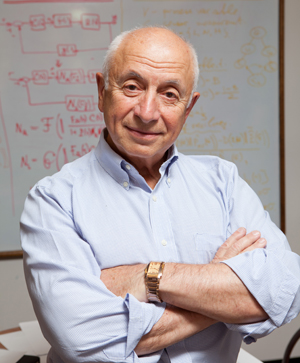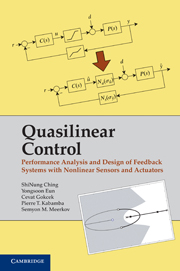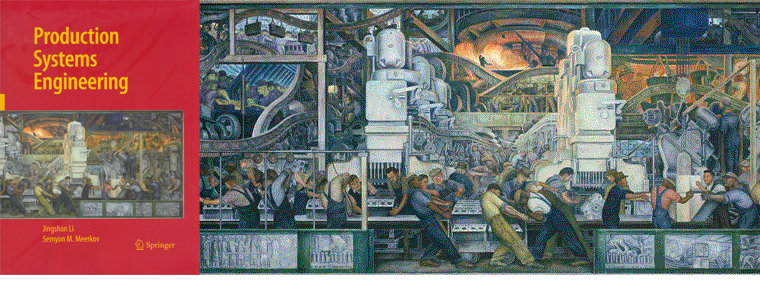Semyon Meerkov elected Foreign Member of the Russian Academy of Sciences
The Academy is the highest scientific institution in Russia. According to its Charter, “only the most prominent foreign scientists recognized by the international scientific community can be elected….”

 Enlarge
Enlarge
On October 27, 2016, Professor Meerkov was unanimously elected as a Foreign Member of the Russian Academy of Sciences for his contributions to Systems Science and Automation.
The Academy, established in 1774, is the highest scientific institution in Russia. According to its Charter, “only the most prominent foreign scientists recognized by the international scientific community can be elected foreign members of the Russian Academy of Sciences.” Among the 63 Foreign Members elected this year were Nobel Prize winners Serge Haroche and Martinis Veltman (physics), Roger D. Kornberg, Jean-Pierre Sauvage and Dan Shechtman (chemistry), Kenneth Arrow (economics), and Henry Kissinger (peace). Also elected was President of the U.S. National Academy of Sciences Marcia McNutt.
Professor Meerkov has been involved in research and teaching for over 50 years. Early in his career, he contributed to the fields of averaging theory, adaptive (extremum-seeking) systems, mathematical theory of rational behavior, and non-convex optimization. Later on, he established the fields of vibrational control, aiming control, system-theoretic version of production systems engineering, and quasilinear control. His current work is centered on the last two topics and on the theory of resilient monitoring and control systems, which degrade gracefully under cyber-attacks.

 Enlarge
Enlarge
Along with theory, he has been involved in applications. In particular, the production systems engineering methods developed in his research group have been applied in dozens of successful continuous improvement projects at various manufacturing plants in the U.S. and abroad.
Professor Meerkov joined the University of Michigan in 1984, and has been teaching undergraduate courses on Signals and Systems, Probability Theory, and Feedback Control. At the graduate level, he has taught courses on Nonlinear Systems, Nonlinear Control, and Production Systems Engineering. He has supervised or co-supervised over 30 PhD students, many of whom went on to become well known scientists/engineers.
Along with more than 300 papers, Professor Meerkov published two books. The first one, co-authored with his former PhD student Jiangshan Li, is titled Production Systems Engineering (Springer 2009, Chinese translation 2012). The second, titled Quasilinear Control (Cambridge University Press, 2011), is co-authored with the late Professor Pierre T. Kabamba and three of their former doctoral students ShiNung Ching, Yongsoon Eun, and Cevat Gokcek. The first of these monographs is used as a textbook for EECS 569 (Production Systems Engineering) and the second for EECS 662 (Advanced Nonlinear Control).

 Enlarge
Enlarge
In service to the profession, Professor Meerkov was the Editor-in-Chief of Mathematical Problems in Engineering, Department Editor for Manufacturing Systems of the IIE Transactions, and Associate Editor for a number of other journals. At present, he is on the Editorial Boards of International Journal of Production Research and Automation and Remote Control.
In service to the University, he was a part of a group of faculty who established the Administration Evaluation Committee in 2003. This committee carries out annual evaluations of all U-M administrators, from the President to the Department Chairs, by the University faculty and research staff. Over the years, this system offered the faculty an opportunity to affect a number of important University-wide, College, and Departmental decisions.
 MENU
MENU 
